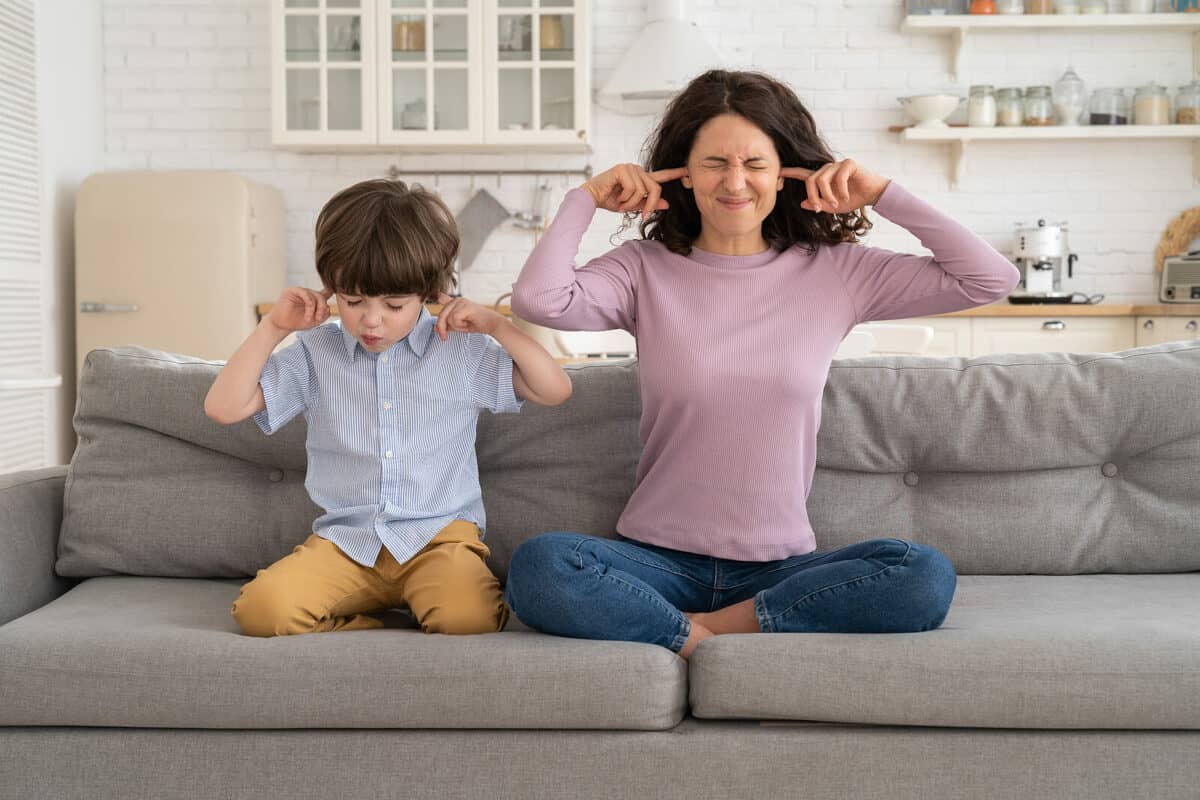Hearing loss is projected to affect 48 million people in the US and about 10 million of those cases are caused by exposure to loud noise. The alarming thing about noise induced hearing loss is that it doesn’t discriminate between age. In fact, it is estimated that 17 percent of teens (ages 12 to 19) have features apparent on hearing exams that suggest noise induced hearing loss in one or both ears!
Dangerous Decibels
The sound pressure, also known as loudness or volume of sound is measured in decibels and any decibel above 70 dBA over a 24-hour exposure can damage hearing and increase stress levels to the point of affecting blood pressure in a dangerous way. This means that low-grade dangerous levels of noise in your home or work can build up to very damaging effects. However, as the decibels rise the time it takes for damage to occur reduces all too quickly. At 85 dBA damage can occur in 8 hours and for every increase of three decibels this exposure is cut in half. For instance, at 88 dBA, it takes four hours, and at 91 dBA it takes only two hours for permanent hearing damage to occur. By the time sounds reach past 100 dBA a one-time exposure to an intense sound, such as an explosion can cause instantaneous and severe hearing loss!
Looking Out for Dangerous Decibels
Many people are well aware of the risk of certain activities such as mowing the lawn or attending a loud concert while other sounds are dangerously underestimated for the serious and lasting effect they can have on our ears and those of our children. For instance, one of the greatest risks to our hearing that easily slips under the radar is exposure to continuous loud sounds over long periods of time, such as noise from headphones, headsets, earbuds, and personal listening devices. We often offer our children these devices as a babysitter on long drives or when we have work to do without realizing just how loud these devices can get. However, headphones connected to personal listening devices can deliver sounds as high as 100 dBA or more, causing damage in 15 minutes or less!
In addition, now that it is summertime, it also means we are out in larger groups and staying out later due to longer days. Summer concerts, fireworks, street traffic such as motorcycles, sirens, and even firearms—can range anywhere from 95 to 150 decibel dBA, increasing instances where our hearing can be unexpectedly assaulted.
How to Know if You Have Noise Induced Hearing Loss
The symptoms of noise induced hearing loss can be difficult to diagnose at any age, especially in the early stages. This is because it is often only certain sounds which are diminished at first such as high-pitched sounds. It’s often that the volume of sound heard may be the same but the quality of it lessens, making it just a bit harder to follow conversations, especially those with higher voices such as young children. You may also experience a ringing in the ears which comes and goes called tinnitus—a common sign of noise induced hearing loss.
How Can I Help Protect My Child’s Hearing?
It isn’t possible to predict every instance that we and our children may be exposed to sounds that can unexpectedly cause hearing loss. However, here are some helpful tips to help you be prepared and ways to limit exposure:
Hearing Protection: Earmuffs, foam earplugs, custom fitted earplugs or active noise canceling headphones. While it can be hard to convince your child to be diligent about the use of these devices it is important in loud environments. Model for them by wearing hearing protection at concerts, firework shows or any other place where you and their hearing may be at risk. Foam and custom earplugs can reduce sound energy hitting young ears by about 25 dBA, meaning the difference between hearing loss and normal hearing.
Monitor Listening Levels of Personal Listening Devices: We recommend insisting on keeping all personal music players, smartphones, gaming device headsets, televisions, and stereo equipment at a volume no higher than 60 percent of the potential volume. Some devices have safe listening settings to inhibit louder noises from damaging ears.
Schedule a Hearing Exam
If you suspect that you or your children have been exposed to loud noise that may have damaged your hearing, we are here to help. Schedule a hearing exam with us today. We can help find a solution to protect your hearing and address any hearing loss that may have occurred.

